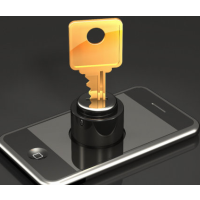State Senate Quickly Terminates Cellphone Kill-Switch Legislation

Legislation to mandate kill switches on cellphones and other mobile devices—supported by consumers and law enforcement—died a quick death in the state Senate Thursday under pressure from the telecommunications industry.
San Francisco Democrat Mark Leno, the sponsor of Senate Bill 962, said he thought he had 21 votes for passage, but ended up on the losing end of a 19-17 vote when a handfull of Democrats joined nearly all the Republicans in rejecting the measure. The bill would apply to any mobile devices sold or manufactured in California.
“The industry makes billions, tens of billions of dollars replacing lost and stolen phones each year,” Leno said. “They also make many billions of dollars selling you and me insurance in case you are robbed.”
San Francisco District Attorney George Gascón told the San Francisco Chronicle, “With their no vote, 17 members of the Senate chose to protect billion dollar industry profits over the safety of the constituents they were elected to serve.”
Theft of mobile devices accounts for almost one-third of robberies in the U.S., according to the Federal Communications Commission (FCC). An estimated 1.6 million Americans were victimized in 2012 and around 60% of thefts in San Francisco and 75% in Oakland involved mobile devices.
Senate Republican leader Bob Huff told the Los Angeles Times the bill was “punitive” and “unnecessary.” Although he does not support a kill switch for mobile devices, Huff does think they have a practical application elsewhere. “One of the biggest criticisms we get in the state is they don't have a 'kill switch' on us when we come up with crazy ideas.”
Opponents of the bill said it was unnecessary because the industry has promised to voluntarily build in the technology that would allow customers to disable the phone if stolen or lost by simply going online and punching in a kill code. Some raised the prospect of kill switches being exploited through government surveillance and hacking and others said if users truly wanted the feature, they could download an app that would give them that capability.
But without an industry-wide default standard, supporters of the kill-switch argue, the deterrent effect would be lost. Thieves would continue to snatch cellphones in hope that the ones they got weren't protected.
CTIA wireless trade group spokesperson Jamie Hastings said in a statement that the industry much preferred the “Smartphone Anti-Theft Voluntary Commitment,” which respectfully asks manufacturers to offer kill-switch options after July 1, 2015, but avoids the nasty insistence by lawmakers that they actually do it.
The bill had the formal backing of the California Police Chiefs Association, Alameda County and San Francisco district attorneys, the California Pawnbroker's Association, the cities of Los Angeles, Oakland, San Francisco, San Diego and Santa Ana, and the Temescal Merchants Association, among others.
Both the U.S. Senate and House have bills pending that would mandate kill switches at the national level and Leno said he may reintroduce his legislation at a later date.
–Ken Broder
To Learn More:
Bill Requiring Mobile Phone "Kill Switch" Falls Short in Senate (by Christopher Cadelago, Sacramento Bee)
Lawmakers Reject Bill Requiring Cell Phone Kill-Switch (by Melody Gutierrez, San Francisco Chronicle)
Mandate for "Kill Switches" in Smartphones Fails in Calif. Senate (by Patrick McGreevy, Los Angeles Times)
- Top Stories
- Controversies
- Where is the Money Going?
- California and the Nation
- Appointments and Resignations
- Unusual News
- Latest News
- California Forbids U.S. Immigration Agents from Pretending to be Police
- California Lawmakers Urged to Strip “Self-Dealing” Tax Board of Its Duties
- Big Oil’s Grip on California
- Santa Cruz Police See Homeland Security Betrayal in Use of Gang Roundup as Cover for Immigration Raid
- Oil Companies Face Deadline to Stop Polluting California Groundwater





